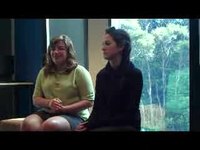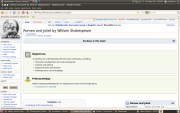ASHS Coursebook: 2ENG (Year 12 English)
| [▲] | |
|---|---|
| NCEA Level: | |
| Primary Qualification: | |
| Primary Learning Area: | |
| Date: | 14/05/2018 |
Contents
[hide]What is this course about?
In this course you will develop your ability to show a discriminating understanding of a broad range of texts and language techniques as well as communicating your own ideas in a sustained and convincing manner.The course has also a thematic approach/overarching theme. Some of the popular themes used in level 2 English are:
- dilemmas
- diversity
- dystopia
What will I learn?
- How to write confidently and convincingly in a range of styles to express your ideas.
- How to powerfully explore and articulate your ideas verbally through speeches, presentations and debates.
- How to closely read and analyse static and moving visual texts.
- How to use processes and structures precisely to understand and respond to surface level and deeper ideas within texts.
- How to analyse and consider different readings available within a text.
- Why and how to use accurate and integrated language features in a range of situations and for different audiences.
What sorts of things will I do?
- Read a range of written, visual and oral texts such as novels, short stories, articles, poetry, films, and static images.
- Write, speak and create visual texts to express your own ideas.
- Analyse and examine perspectives and ideas in texts and demonstrate your understanding of these through creating your own texts.
Personal Excellence
Achieving success is all about deciding what you can do to challenge yourself and doing the best you can to reach your goals. One way to do this in English could be to choose particular standards in which you could achieve Merit or Excellence. Another way might be to aim for a subject endorsed certificate in English – 14 credits at Merit or Excellence (4 credits need to come from an External). To achieve challenging goals and quality credits this year you should work closely with your peers, parents/caregivers, tutor and teacher.
Something else to consider during your Year 12 course is Scholarship Examinations at Year 13. These are a very challenging set of assessments and you should start working to develop your analysis and formal writing skills in preparation for these as early as possible. Your teacher will be happy to support and guide you in developing your personal readings of extension texts and giving specific feedback on your writing.
Conditions for Assessment
Standards such as the Writing Portfolio are only able to be worked on in class. This is to ensure authenticity – that all work that you submit is your own. It is important that you understand the conditions of assessment for these standards and that you direct any questions about when and how you're able to work on them to your teacher.
Submitting Internal Assessments
It is important that you take note of the due dates for your internal assessments. All internal assessments must be submitted on or prior to the due date, unless prior approval has been granted for special circumstances (refer to your NCEA guidelines or talk to your teacher about this). Assessments that are submitted after the due date, without prior approval, will receive a Not Achieved.
Resubmissions and Reassessments
Resubmissions can only be offered once and only when small errors or omissions need to be corrected in your work in a short period of time. Resubmissions are not available to students who just want to improve their grade; you may have the opportunity to do this through a reassessment, however you need to check with your teacher, as reassessments are not available in every standard. Please read the NZQA assessment document that your teacher will give you carefully so you are fully aware of these conditions.
Course Outline for 2017
| Term 1 (11 weeks) | Term 2 (10 weeks) | Term 3 (10 weeks) | Term 4 (4 weeks) |
| Introduction to course theme
2.10 Close Viewing (6 Weeks) 2.8 Research (5 Weeks) |
2.1 or 2.2 Text Study (6 Weeks)
2.4 Writing Portfolio (4 Weeks) |
2.5 Speech (1 week)
2.4 Writing Portfolio (3 Weeks) 2.1 or 2.2 Text Study (4 Weeks) Preliminary Exam preparation and reflection |
Revision (3 Weeks) |
| Key Dates
Week 6: Close Viewing Due |
Key Dates
Week 2: 2.8 Research Due Week 10: First Piece of Writing Portfolio Due |
Key Dates
Week 1: 2.5 Speech Due Week 8: Second Piece of Writing Portfolio Due Week 9: Preliminary Exams |
Key Dates
Week 1: 2.9 Personal Responses Due (optional standard) |
Standards Available
| NCEA Level: | Standard Number: | Name of standard: | Version Number: | Credits: | Assessment: | UE literacy (reading): | UE literacy (writing): |
| 2 |
AS91098 |
2.1 Analyse specified aspect(s) of studied written text(s), supported by evidence | 3 | 4 | External | Y | Y |
| 2 |
AS91099 |
2.2 Analyse specified aspect(s) of studied visual or oral text(s), supported by evidence | 3 | 4 | External |
N | Y |
| 2 |
AS91101 |
2.4 Produce a selection of crafted and controlled writing | 2 | 6 | Internal |
N | Y |
| 2 |
AS91105 |
2.8 Use information literacy skills to form developed conclusion(s) | 2 | 4 | Internal |
Y | N |
| 2 |
AS91107 |
2.10 Analyse aspects of visual and/or oral text(s) through close viewing and/or listening, supported by evidence | 2 | 3 | Internal |
N | N |
| 2
2 |
AS91102
AS91106 |
2.5 Construct and deliver a crafted and controlled oral text
2.9 Form developed personal responses to independently read texts, supported by evidence (optional extra standard) |
2
2 |
3
4 |
Internal
Internal |
N
Y |
N
N |
| |
|
NOTE: The standard course contains only one external, although some students may opt to sit both externals. | Total available credits: | 20 (28) |
|
|
|
Vocational Pathways provide a framework for students to show how their learning and achievement is valued in the workplace by aligning learning to the skills needed for industry.

